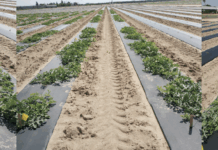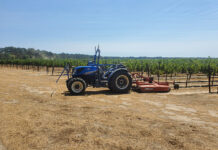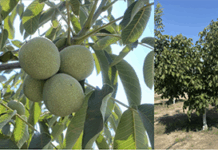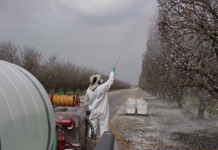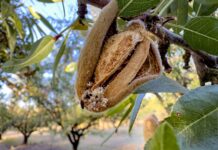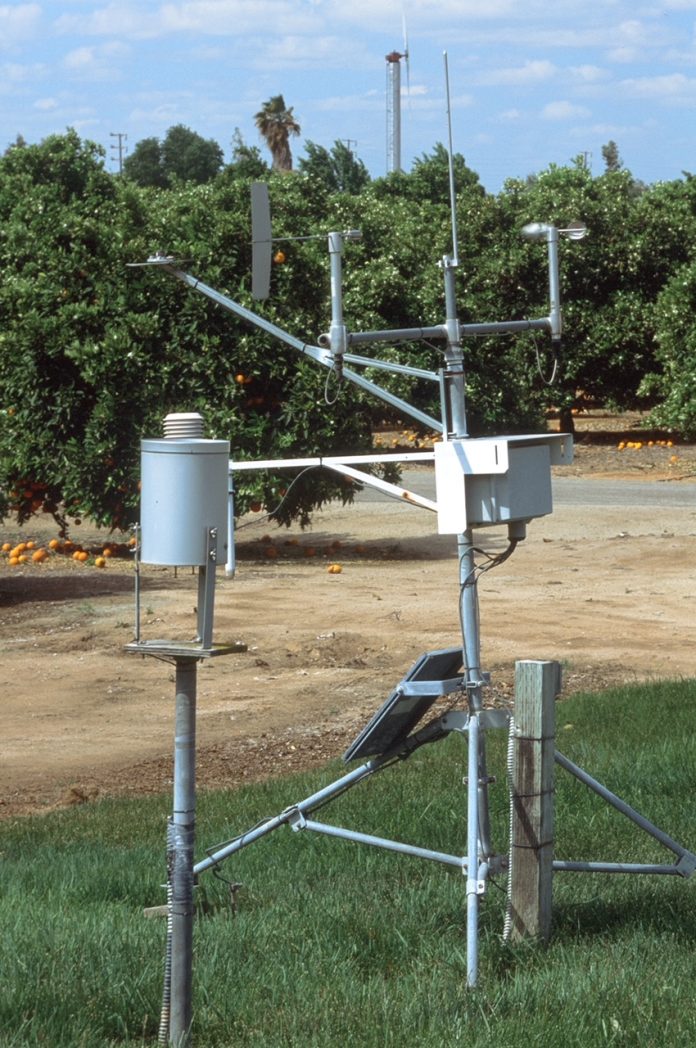
In a recent presentation at the 2021 UC Davis Winter Grape Day, Daniele Zaccaria, UCCE agriculture water management specialist, evaluated the accuracy of Forecast Reference EvapoTranspiration (FRET) for prospective irrigation scheduling.
FRET ETo is a National Weather Service product. It was developed in 2008 collaboratively by UC Davis, the California Department of Water Resources and the National Weather Service to improve high-frequency irrigation management and encourage the adoption of ET-based scheduling for irrigation of agricultural and urban landscapes in California. FRET ETo forecasts are now available for one-, three-, five- and seven-day leads.
Zaccaria said that FRET ETo is a valid alternative to using near-real-time ETo data from the California Irrigation Management Information System (CIMIS) network and provides clear advantages for irrigation scheduling of specialty crops.
While ETo data from CIMIS are considered near real-time, they are retrospective, i.e., they refer to the previous time period when it comes to scheduling water deliveries to growers (for irrigation districts) and on-farm irrigation (for farmers). As such, when information from CIMIS is used, ETo data from the period just passed (one-day, three-day, one-week, two-week) are used for scheduling water deliveries to growers and/or irrigation applications for the next period ahead.
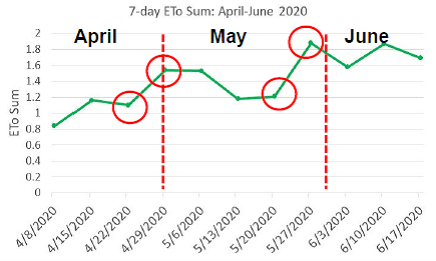
If growers use retrospective ETo data (CIMIS), they may run the risk of over-irrigating or under-irrigating crops during times/stages that may be sensitive for fruit yield and quality. The graphs below show rapid changes of the three-day and one-week cumulative ETo values for Napa Valley. As such, using the ETo from one week to quantify irrigation applications for the following week may lead to scheduling mistakes.
FRET forecasts all the weather variables (using the Global Forecast System, GFS) needed for the ETo equation except solar radiation (Rs). Rs is calculated from forecast daily fraction cloud cover (using the ratio of actual to potential sunshine hours, n/N) and extraterrestrial radiation (Ra), which is a function of latitude and day of the year (DOY).
The CIMIS stations measure all the weather variables necessary for calculating the atmospheric water demand and calculate ETo values at hourly and daily time-steps, which are then made publicly available for agricultural and urban irrigation management.
Zaccaria said the comparisons between FRET forecast ETo and CIMIS ETo calculated from observed weather variable showed good agreement for all the 15 selected station locations across California, which spanned from low to moderate to high ETo demand for all the considered months (June, July, August and September). The results also show that the seven-day ETo forecasts are nearly as good as the one-day ETo forecasts, while the three-day and five-day ETo forecasts are slightly better.
With all data together, Zaccaria said the correlations between FRET ETo and CIMIS ETo showed a Coefficient of Determination (R2) ranging between 0.9 and 1.0 (1.0 meaning perfect match between the variables being regressed) while the Root Mean Square Error (RMSE) was in most cases less than 0.04 inches per day (RMSE being a measure of the differences between the predicted and measured values.) The poorest results were obtained from the Imperial Valley station at Meloland, Torrey Pines in north coastal San Diego County and the Camino forest area in El Dorado County. A slight overestimation of 10% to 20% of forecast ETo versus CIMIS ETo were noted for Bishop’s mountain range site and the Oakville station in Napa Valley.





